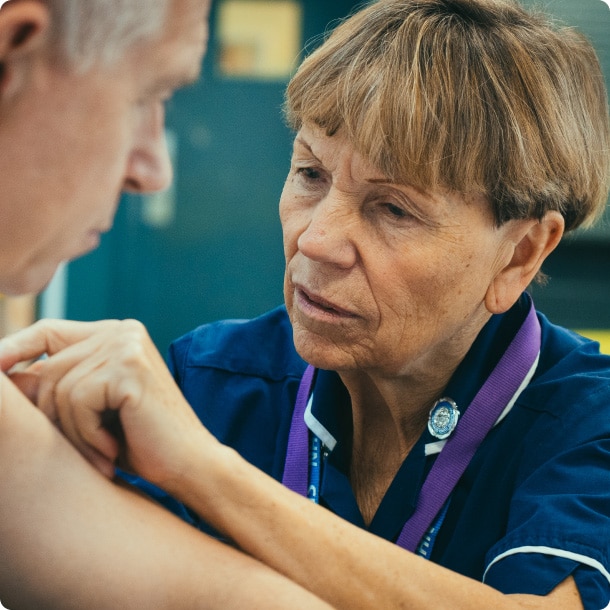Gonorrhoea
Gonorrhoea is the 2nd most common bacterial STI after Chlamydia.
About the Gonorrhoea
Book Appointment
Why choose CityDoc?
- Same, next day & weekend appointments
- Full range of vaccines in stock
- Experienced travel health nurses
- 100+ clinics & pharmacy partners nationwide
- 80 registered Yellow Fever clinics
- Care Quality Commission regulated
Individual consultation
The nurse or pharmacist will discuss requirements with you so we can tailor the advice to your individual needs:
- Your upcoming travel itinerary
- Your planned activities
- Your medical history

Expert advice
Our expert will explain the vaccines, what they protect against, the costs and any other risks. You can choose what to take up:
- Your recommended vaccines
- Your options for non-essential vaccines
- Other precautions against health risks

Treatment
You will receive your vaccinations and antimalarials during the same appointment. Some vaccines require several doses.
- First vaccine doses administered
- Yellow Fever certificate
- Booking for follow up doses
The Illness & Symptoms
50% of women will not have symptoms of gonorrhoea, but in the majority of men, symptoms will be present and can develop from 2 to 10 days after acquiring the infection.
Symptoms in Men
- Pain/discomfort on passing urine
- Discharge from the penis
- Can affect the testicles-causing pain and swelling.
- Can also cause arthritis to the joints, such as the knee.
Symptoms in Women
- Pain on passing urine
- Abnormal vaginal discharge
- Bleeding in between periods
- Bleeding after intercourse
- Pain on intercourse
- Lower abdominal or pelvic pain
In women, untreated Gonorrhoea infection can cause Pelvic Inflammatory Disease, which may damage the fallopian tubes. This is a risk factor for ectopic pregnancies (where the pregnancy occurs outside the womb) and infertility.
As well as affecting the genital region, Gonorrhoea can also cause infection of the throat and rectum, which is particularly likely to occur after oral intercourse and anal intercourse respectively.
Diagnosis of Gonorrhoea
The test of choice is the NAAT test (Nucleic acid amplification test), as it is highly sensitive. This can be performed on a urine sample in men (as long as the bladder has not been emptied for 1 hour) or a swab from the vagina in women. For individuals with rectal or throat symptoms or who have had anal or rectal exposure, a rectal swab or a throat swab should also be performed.
Treatment
Gonorrhoea is treated with a single injection of an antibiotic. it is advised to have a follow up test done 2-3 weeks later to check the infection has cleared. Abstain from sexual intercourse until seven days after you and your partner(s) have completed treatment We would also recommend getting a full sexual health screening and it is important that you inform all sexual partners within the last 3 months.
Treatment for Gonorrhoea is only available at CityDoc London.
Chlamydia/Gonorrhoea Testing
| Name of Test | Results / Turnaround |
|---|---|
| Chlamydia & Gonorrhoea Test From 14 days |
London - Same Day Result (If taken before 12pm) Nationwide service- result in 2 to 5 days |
| Herpes Test | 3 to 5 days |
| Enhanced Urine / Swab Test Chlamydia, gonorrhoea, herpes, trichomonas, Ureaplasma, gardnerella and mycoplasma |
3 to 5 days |